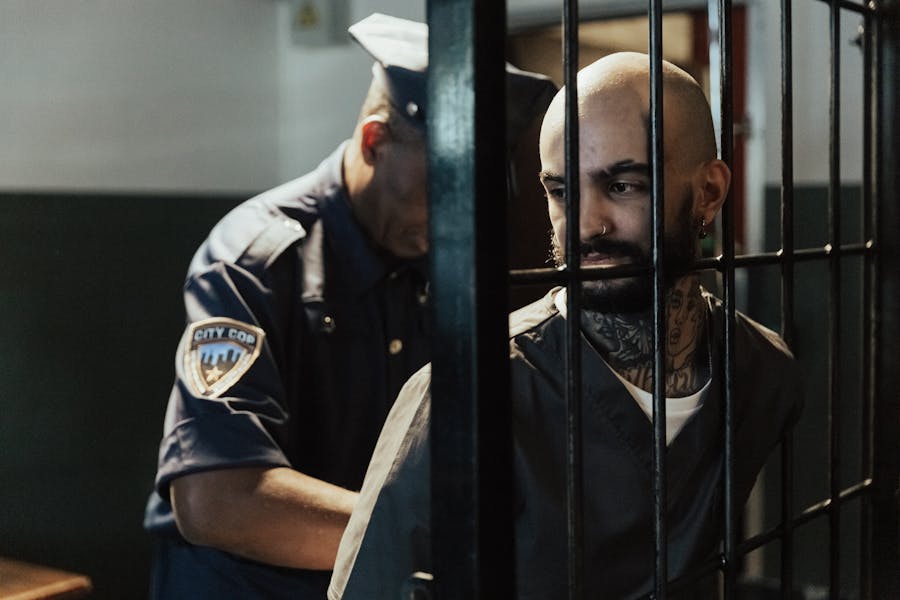Arrested or Charged with Statutory Rape (Penal Code 261.5) in California?

If you or someone you know has been arrested or charged with statutory rape in California, it’s crucial to understand the nature of this offense, its potential consequences, and your legal options.
At David P. Shapiro Criminal Defense Attorneys, we defend individuals facing serious criminal charges, including statutory rape. Our experienced attorneys are here to guide you through this challenging time and protect your rights.
Statutory Rape Charges in California
Statutory rape, legally referred to as “unlawful sexual intercourse” in California, is defined in Penal Code 261.5. This law criminalizes sexual intercourse with a minor, even if the minor consented to the act. The rationale behind this law is that minors are not considered legally capable of giving consent to sexual activities.
According to Penal Code § 261.5(a):
“Unlawful sexual intercourse is an act of sexual intercourse accomplished with a person who is not the spouse of the perpetrator, if the person is a minor. For the purposes of this section, a ‘minor’ is a person under 18 years of age and an ‘adult’ is a person who is 18 years of age or older.”
It’s important to note that this law applies regardless of the gender of the perpetrator or the victim. Both males and females can be charged with statutory rape.
Key Elements of Statutory Rape
To prove statutory rape, the prosecution must establish the following elements:
- The defendant had sexual intercourse with another person.
- The defendant and the other person were not married to each other at the time of the intercourse.
- The other person was under the age of 18 at the time of the intercourse.
Notably, the prosecution does not need to prove that the intercourse was non-consensual. The consent of the minor is irrelevant under this law.
Types of Statutory Rape Charges
California law distinguishes between different types of statutory rape based on the age difference between the perpetrator and the victim. The severity of the charge and potential penalties vary accordingly:
1. Misdemeanor Statutory Rape
Penal Code § 261.5(b) states:
“A person who engages in an act of unlawful sexual intercourse with a minor who is not more than three years older or three years younger than the perpetrator, is guilty of a misdemeanor.”
This provision is sometimes referred to as the “Romeo and Juliet” clause, as it recognizes that sexual relationships between peers close in age are less culpable than those involving a significant age difference.
2. Wobbler Offense – Misdemeanor or Felony
According to Penal Code § 261.5(c):
“A person who engages in an act of unlawful sexual intercourse with a minor who is more than three years younger than the perpetrator is guilty of either a misdemeanor or a felony, and shall be punished by imprisonment in a county jail not exceeding one year, or by imprisonment pursuant to subdivision (h) of Section 1170.”
This type of statutory rape is a “wobbler” offense, meaning it can be charged as either a misdemeanor or a felony, depending on the circumstances of the case and the discretion of the prosecutor.
3. Aggravated Statutory Rape
Penal Code § 261.5(d) outlines the most serious form of statutory rape:
“A person 21 years of age or older who engages in an act of unlawful sexual intercourse with a minor who is under 16 years of age is guilty of either a misdemeanor or a felony, and shall be punished by imprisonment in a county jail not exceeding one year, or by imprisonment pursuant to subdivision (h) of Section 1170 for two, three, or four years.”
This provision targets cases involving a significant age difference and a particularly young victim.
Penalties for Statutory Rape in California
The penalties for statutory rape in California can be severe and life-altering. They may include:
- Imprisonment: Depending on the specific charge, this can range from up to one year in county jail to two, three, or four years in state prison.
- Fines: The court may impose fines, which can be substantial.
- Probation: In some cases, probation may be granted instead of or in addition to imprisonment.
- Sex Offender Registration: While statutory rape doesn’t always require sex offender registration, it may be imposed in some cases, especially for felony convictions.
- Civil Penalties: In addition to criminal penalties, defendants may face civil penalties. Penal Code § 261.5(e)(1) outlines these potential civil penalties:
- Up to $2,000 if the minor is less than two years younger than the adult
- Up to $5,000 if the minor is at least two years younger than the adult
- Up to $10,000 if the minor is at least three years younger than the adult
- Up to $25,000 if the adult is over 21 and the minor is under 16
Defenses to Statutory Rape Charges
While statutory rape charges are serious, there are several potential defenses that an experienced attorney can explore:
- Mistake of Age: If the defendant had a reasonable and good faith belief that the victim was 18 or older, this may serve as a defense.
- No Sexual Intercourse: If there was no actual sexual intercourse (as defined by law), the charge cannot stand.
- Marriage: If the defendant and the alleged victim were legally married at the time of the incident, it’s not statutory rape.
- False Accusation: Unfortunately, false accusations do occur. A skilled attorney can investigate and expose false claims.
- Violation of Due Process: If law enforcement violated the defendant’s constitutional rights during the investigation or arrest, it may be possible to have evidence suppressed or charges dismissed.
Long-Term Consequences of a Statutory Rape Conviction
Beyond the immediate legal penalties, a statutory rape conviction can have far-reaching consequences:
- Criminal Record: A conviction will result in a criminal record, which can affect future employment opportunities, housing applications, and more.
- Professional Licenses: Certain professional licenses may be revoked or denied due to a statutory rape conviction.
- Immigration Status: For non-citizens, a conviction could lead to deportation or inadmissibility.
- Reputation Damage: Being labeled as a sex offender can severely damage one’s personal and professional reputation.
- Restrictions on Working with Minors: Many jobs or volunteer positions involving minors may be off-limits to those convicted of statutory rape.
Frequently Asked Questions about Statutory Rape in California
To help you better understand statutory rape charges in California, here are answers to some frequently asked questions:
Can I be charged with statutory rape if the minor lied about their age?
Potentially, yes. However, if you had a reasonable and good faith belief that the person was 18 or older, this may serve as a defense. It’s crucial to consult with an experienced attorney to evaluate the specific circumstances of your case.
Is statutory rape always a felony in California?
No, statutory rape can be charged as either a misdemeanor or a felony, depending on the circumstances of the case and the age difference between the parties involved.
Will I have to register as a sex offender if convicted of statutory rape?
Not necessarily. Unlike some other sex crimes, statutory rape doesn’t always require sex offender registration. However, the judge has the discretion to require registration in some cases, especially for felony convictions.
What if both parties were under 18?
In cases where both parties are minors, it’s possible for both to be charged with statutory rape. However, prosecutors often use discretion in these cases and may choose not to file charges.
Can statutory rape charges be expunged from my record?
In some cases, yes. If you were convicted of misdemeanor statutory rape and successfully completed probation, you may be eligible to have the conviction expunged from your record.
What if the minor’s parents consented to the relationship?
Parental consent is not a defense to statutory rape charges in California. The law considers minors incapable of consenting to sexual intercourse, regardless of their parents’ views.
How long after the alleged incident can I be charged with statutory rape?
In California, the statute of limitations for statutory rape is generally one year for a misdemeanor and three years for a felony. However, there are exceptions that can extend this time frame, especially if the victim was very young at the time of the offense.
Why You Need an Experienced Sex Crimes Criminal Defense Attorney
Given the complexity of statutory rape laws and the severity of potential consequences, it’s crucial to have skilled legal representation if you’re facing these charges. At David P. Shapiro Criminal Defense Attorneys, we have extensive experience defending clients against statutory rape allegations. Here’s how we can help:
- Case Evaluation: We’ll thoroughly review the evidence against you and identify potential weaknesses in the prosecution’s case.
- Defense Strategy: Based on the specifics of your case, we’ll develop a robust defense strategy tailored to your situation.
- Negotiation: If appropriate, we’ll negotiate with prosecutors to reduce charges or penalties.
- Trial Representation: If your case goes to trial, we’ll vigorously defend you in court, challenging the prosecution’s evidence and presenting your side of the story.
- Post-Conviction Relief: If you’ve already been convicted, we can explore options for appeal or expungement.
Protect Your Rights and Your Future
Being charged with statutory rape is a serious matter that can have life-altering consequences. However, an arrest or charge does not necessarily mean a conviction. With the right legal representation, you can fight these charges and protect your rights and your future.
At David P. Shapiro Criminal Defense Attorneys, we understand the nuances of California’s statutory rape laws and the complexities of the criminal justice system. We’re committed to providing strategic defense for our clients, ensuring that their side of the story is heard and their rights are protected.
If you or someone you love is facing criminal charges in California, swift action is imperative. The penalties can be life altering and long lasting. Give us a call today to set up a case evaluation with one of our attorneys and learn how to protect your freedom and future best.
Too often, we see clients who “wait and see,” unsure of the legal landscape ahead, only for charges to escalate. They then find themselves backpedaling into a bad defense and an even worse lawyer. Don’t let that happen to you. Protect your freedom. Protect your future. Know your rights.
The contents of this article and blog are meant for informational and marketing purposes only and do not constitute legal advice. Viewing and/or use of the blog does not form an attorney-client relationship. No statements in this post are a guarantee, warranty, or prediction of a particular result in your case.









